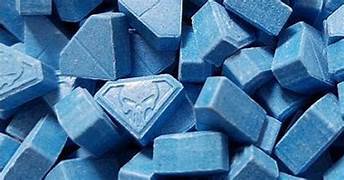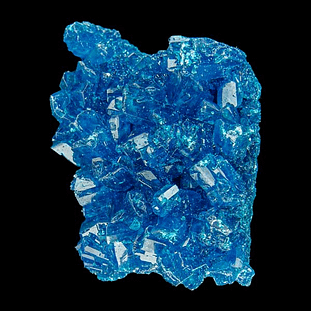What Can You Do To Save Your Mdma Canada From Destruction By Social Media?
Corps
The party drug that could be your mental health ally
MDMA is a party drug that has been gaining popularity in buy mdma online recent years. Often called “Molly” or “Ecstasy,” MDMA is a synthetic drug that produces feelings of euphoria, increased energy, and altered sensory perception.
MDMA has been shown to be effective in treating a variety of mental health conditions, including post-traumatic stress disorder (PTSD), anxiety, and depression. In one study, MDMA was found to be especially effective in treating PTSD when used in conjunction with traditional psychotherapy.
Another study found that MDMA can help reduce anxiety and improve social skills in people with social anxiety disorder. MDMA may also be effective in treating depression, although more research is needed.

MDMA is generally considered safe when used responsibly. However, there are some risks associated with its use, including dehydration, hyperthermia, and anxiety. It’s important to be aware of these risks and take precautions to avoid them.
If you’re considering using MDMA for mental health purposes, it’s important to talk to a mental health professional first. They can help you assess whether MDMA is right for you and provide guidance on how to use it safely.
The therapeutic potential of MDMA
MDMA is a powerful psychoactive drug that has a wide range of potential therapeutic applications. MDMA has been shown to be effective in treating a variety of conditions, including post-traumatic stress disorder (PTSD), anxiety, and depression. MDMA is also being studied as a potential treatment for Alzheimer's disease and Parkinson's disease.
MDMA works by increasing levels of the neurotransmitters serotonin, dopamine, and norepinephrine in the brain. This increase in neurotransmitter levels leads to a feeling of euphoria and well-being. MDMA also increases levels of the hormone oxytocin, which is involved in social bonding and attachment.
The therapeutic potential of MDMA has been known for over 30 years. In the 1980s, MDMA was studied as a potential treatment for PTSD. In recent years, MDMA-assisted therapy has been shown to be an effective treatment for PTSD. In a study of 26 PTSD patients, MDMA-assisted therapy was found to be more effective than traditional therapy in reducing PTSD symptoms.
MDMA has also shown promise as a treatment for anxiety and depression. In a study of 30 patients with treatment-resistant depression, MDMA-assisted therapy was found to be more effective than placebo in reducing symptoms of depression. MDMA has also been shown to be effective in treating social anxiety in autistic adults.
MDMA is also being studied as a potential treatment for Alzheimer's disease and Parkinson's disease. MDMA has been shown to improve cognitive function in Alzheimer's patients. MDMA is also being studied as a potential treatment for Parkinson's disease. In a study of rats with Parkinson's disease, MDMA was found to improve motor function and reduce inflammation.
The therapeutic potential of MDMA is promising. MDMA has been shown to be effective in treating a variety of conditions, including PTSD, anxiety, and depression. MDMA is also being studied as a potential treatment for Alzheimer's disease and Parkinson's disease.
How MDMA is being used to treat PTSD and anxiety
MDMA is a powerful psychoactive substance that has a wide range of effects on the human brain and body. It is most commonly known as a party drug, as it can produce feelings of euphoria and pleasure. However, MDMA is also being studied for its potential therapeutic benefits. One area of research is its use in the treatment of post-traumatic stress disorder (PTSD) and anxiety.
PTSD is a condition that can develop after a person experiences a traumatic event. It can lead to a range of symptoms, including flashbacks, nightmares, anxiety, and depression. MDMA has been shown to be effective in reducing the symptoms of PTSD. In one study, 83% of participants who received MDMA-assisted therapy no longer met the criteria for PTSD after just two sessions (1).
Anxiety is another condition that MDMA has shown promise in treating. In a small study of 24 participants, those who received MDMA-assisted therapy had a significant reduction in anxiety symptoms compared to those who received a placebo (2).
Overall, the research on MDMA-assisted therapy for PTSD and anxiety is still in its early stages. However, the results so far are promising and suggest that MDMA could be a helpful treatment for these conditions.
If you or someone you know is struggling with PTSD or anxiety, there are many resources available to help. The National Institute of Mental Health (NIMH) provides information on PTSD and anxiety disorders, and the National Suicide Prevention Lifeline provides 24/7 support for those in need.
The risks of taking MDMA

MDMA, or 3,4-methylenedioxymethamphetamine, is a synthetic drug that alters mood and perception. It is chemically similar to both stimulants and hallucinogens, producing feelings of increased energy, pleasure, emotional warmth, and distorted sensory and time perception.1,2
MDMA is most often sold as a capsule or tablet, which is usually taken by mouth. It can also be sold as a powder, which is sniffed or smoked.3 MDMA is sometimes called Ecstasy, Adam, XTC, hug, beans, or clarity.4
The effects of MDMA typically last 3 to 6 hours.5 MDMA can produce stimulant effects such as an enhanced sense of pleasure and self-confidence and increased energy. Its hallucinogenic effects include feelings of peacefulness, acceptance, and empathy.6 Short-term effects of MDMA also include anxiety, muscle tension, and involuntary teeth clenching.7
MDMA increases heart rate and can cause dry mouth, blurred vision, chills, sweating, or nausea.8,9 It can also cause an increase in body temperature that can lead to dehydration and hyperthermia (dangerously high body temperature).10
People who use MDMA often report feeling a need to drink lots of water or other fluids.11 This is because MDMA causes the body to release a hormone that prevents the body from producing urine.12 As a result, people who use MDMA may become dehydrated.
MDMA use can also lead to electrolyte imbalance,13 which can lead to muscle breakdown and kidney failure.
MDMA use can also result in anxiety, depression, and paranoia.14,15
Long-term effects of MDMA use include memory problems, difficulty sleeping,14,16 and depression.17,18
MDMA use can also result in death.19
MDMA is classified as a Schedule I drug, which means it has a high potential for abuse and no currently accepted medical use in the United States.20











commentaires